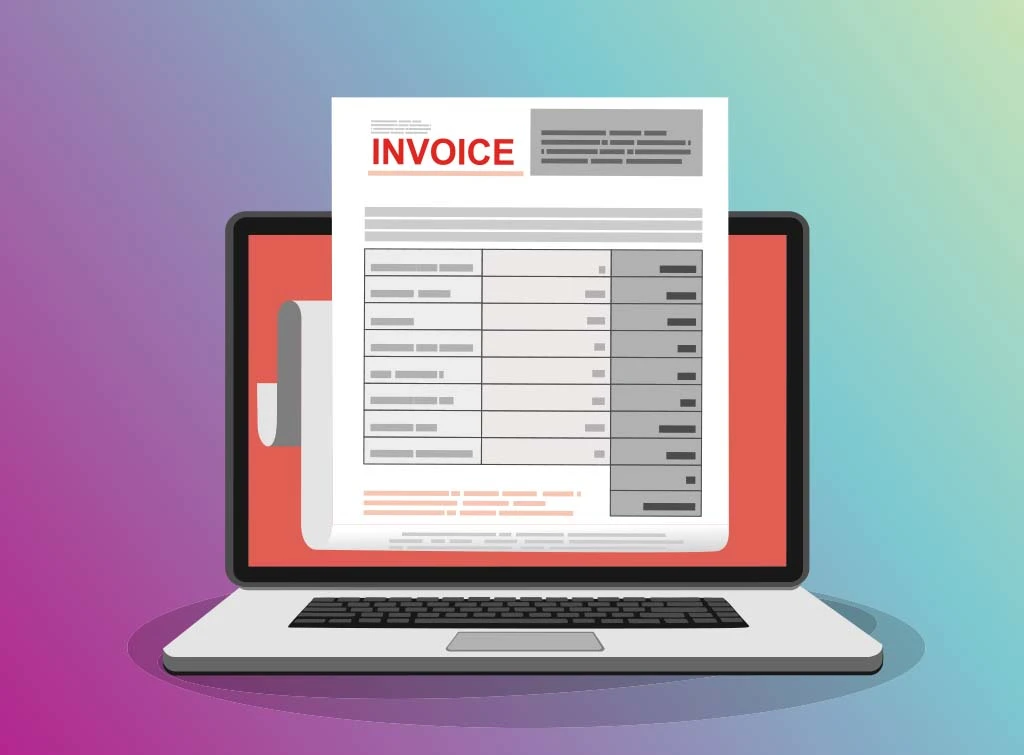Blog>Trade>Finance>Customer refusing to pay for work done? Know your rights
Last updated: 29 August 2024
Customer refusing to pay for work done? Know your rights
Most customers are happy to pay for the work that's been done. However, some will look to delay payment, or even worse, try and avoid it altogether. Here's what you need to know about getting paid and what your options are.

When customers are refusing to pay for work, it can affect your cash flow. On top of that, non-payment can have a generally negative impact on your trade business.
So if it happens, don't panic! There are a number of techniques you can use.
In this article, we look at scenarios, approaches, and solutions that you can apply if your customer is refusing you payment.
What to do with someone who doesn't pay
The ‘professional non-payer’ is an unfortunate truth in the world of tradespeople. They are often crippling for small businesses.
Here are tips on how to deal with those who decide not to pay the invoice for your work.
The scenario of a professional non-payer goes a little something like this:
A tradesperson agrees to carry out some work for a client
They go in, do a great job and no issues are raised
The tradesperson sends over an invoice
The customer gives a list of reasons why they are unhappy with the result
They refuse to pay and the payment falls into dispute
For small businesses who rely on being paid on time and have to budget their cash flow, the consequences of a professional non-payer can be devastating.
But not all is lost. There are several steps you can take to protect yourself and limit the likelihood of a phony complaint.

Practical steps when customers are refusing to pay for work
Instead worrying about messy disputes or legal proceedings, it is always good to consider any potential client before starting work.
Prevention is definitely better than a cure. So you know who you’re dealing with, you might prefer to meet a customer face to face before agreeing to start a job.
However, things can still (unfortunately) go wrong. So consider your options and approach.
Avoiding difficult clients
This is easier said than done. Getting customers that are a good fit for your business isn't always possible.
However, chatting with other tradespeople in the area might give you insight into certain individuals that are unlikely to pay.
This step isn’t always possible, and turning down clients seems counter-intuitive when you’re running a business.
However, considering the potential harm they cause in the long-run, it might be better to weigh up your options before you agree to do a job.
Get support as a Checkatrade member
Our teams provide helpful advice and practical support
Clarify your invoice payment terms
Contracts are essential. They help protect you from pricey legal disputes and also deter professional non-payers from submitting a false claim.
When you create a quote, make sure you include all relevant details and expectations. The dedicated quoting and invoicing tool from Checkatrade is designed to help with this.
Be sure to have the following in place before you start any work:
Robust and counter-signed terms and conditions
A preferred payment method
An agreed payment schedule
The entire scope of work outlined
Agreed deadlines
A late payment policy
To maintain your cash flow, building in payment terms such as deposits or an upfront fee, e.g., half in advance and half on completion is beneficial.
It also means that if disputes do arise, your cash flow will experience less of an impact.
The importance of getting a job confirmed in writing
A Schedule of Works agreement – or contract – is essential for both tradespeople and their customers. Your customers will probably expect some kind of work contract agreement. And not just for large, complicated jobs. Providing a work agreement contract should keep all parties happy. Both of you

Take before and after photos
Before and after photos are not only great for your portfolio. They also protect you from any false claims made about the quality of the work you’ve completed.
Be sure to take a range of both detail-orientated and wide-angled photographs.
Regardless of the job, it makes sense to be able to prove the difference that you've made.
This builds a complete picture of the finished results. In the unlikely event that things take a turn for the worst and you end up in court, having visual proof can really work in your favour as evidence.
Get support as a Checkatrade member
Our teams provide helpful advice and practical support
Check the client is happy
Whenever you finish a job, maintain good practice by asking your clients if they’re happy with your work. Be sure to ask them things like:
Do they need anything checking?
Does the quality of work need refining?
Are they happy with the results?
By focussing on customer satisfaction you limit the likelihood of a complaint. Letting the customer know you're more than happy to fix or resolve any issues will help to build trust between you.

Invoice as soon as possible
Too many small businesses are laid back about invoicing. It’s important to submit invoices at the earliest possible opportunity. It's better to be seen as too efficient, rather than giving a customer an easy excuse to delay settlement.
For larger jobs, that could mean filing before work is completed. Especially if you have invested money in a project and payment terms are 30 days or more.
Examples of what you could say:
“I’m popping this over while I remember”
“I’m doing the company accounts and wanted to ensure you got this on time”
“I just wanted you to make sure you get this ok, no need to settle early”
Many organisations have arbitrary payment schedules. That means that when you write 30 days on your invoice, payment will arrive in 30 days. Being early with handing over an invoice means the ball is in their court, not yours.
To learn more about this topic, read a snippet of the free Accelerate! eBook here.
Read ‘Accelerate!’ for free – Learn the secrets to become a successful tradesperson
Growing your business successfully Every tradesperson running their own business knows just how important growth is. Without it, you wouldn’t be able to expand your customer base or offer your clients new services. But maintaining consistent growth isn’t easy. In fact, it’s one of the hardest parts
Create a paper trail
In the unlikely event someone doesn't pay, send a friendly chaser email. More often than not, someone has simply forgotten.
Customers refusing to pay for work is not the normal when it comes to business transactions.
Remind them of your late payment terms and see what they come back with.
If they then decide to hand over the money, fantastic. But if they don't, you'll need to start getting every correspondence in writing.
Ask for further clarification if the invoice is disputed
Request photos of the work they’re disputing so you can see for yourself
Check for discrepancies against your own before and after pictures
Take some time before you reply with your disagreement or counterclaim
Polite but firm correspondence is recommended. State your terms clearly and outline some potential resolutions, such as fixing a mistake or checking a fault.
Only when that fails do you have to consider going down the legal route.

How can I protect myself against customer non-payment?
If you're a self-employed tradesperson, it can often seem like there is not a support network. Especially when things go wrong.
Some practical steps you can take are:
Making sure to confirm everything in writing beforehand
Get written confirmation from the customer that they're happy
Invoice on time
Make it clear what's expected on both sides
Make it clear what your payment terms are
Consider invoice factoring
When you've got those steps covered, you're pretty well covered. However, when someone refuses to pay, the outcome is still somewhat up to your approach.
It's at times like these when it makes sense to have a third party acting as an intermediary. For example, Checkatrade members have us to fall back on in the event that something goes wrong with payment.
Get support as a Checkatrade member
Our teams provide helpful advice and practical support
What if the customer has a complaint?
If your customer is withholding payment because they’re not happy with the work, try and keep things civil whilst you come to an agreement.
By law, customers can only withhold a 'reasonable’ amount of payment on a job.
For example, if a customer is unhappy with a single plug socket on a full kitchen refurbishment. At that point, they can only withhold the amount required to fix that issue.
Consumers are often advised to find alternative quotes to fix the problem
People can try and negotiate with the tradesperson to deduct it from their invoice
Customers may try to rectify it themselves or get someone else in
At this stage, it’s really up to you whether you continue to make the case for payment, or find a way to finish the job to their satisfaction.
Ultimately time is money and you might find it more cost effective to do the additional work. The time you spend working through any issues or taking legal action could potentially end up more costly than doing the work.
If the customer does actually have a point it'll only end up costing you more in the long run.

What to do if you're currently chasing clients to pay
It may seem obvious but when chasing for payment stay calm, or you may find yourself on the wrong side of the law.
Persistent or aggressive chasing could be perceived as harassment.
You have every right to chase customers for payment but try to keep calls to office hours and leave time between calls. You could also look into issuing a statutory payment demand as a formal notice before taking more serious action.
How to chase an unpaid invoice
If your client fails to meet your agreed payment deadline, your first port of call should always be a polite and casual payment reminder. This could be:
Email
Text message
WhatsApp message
In-app direct message (via the Checkatrade app)
Remember, the point is to create a paper trail, so be civil and courteous, firm but fair. After all, your client may have genuinely made an honest mistake.
Consider drafting a template that you can use as standard for every client when payment is due.
If these initial reminders don’t work, it’s time to make things a little more formal. Write an email, or a letter if you prefer, explaining that if your invoice isn’t paid within a certain number of days, you’ll charge them statutory interest.
Get support as a Checkatrade member
Our teams provide helpful advice and practical support
Debt collection
By now, you should have received your overdue payment, but there are still available options if things still haven’t been resolved.
For example, you could decide to use a debt collection agency. They don’t have any special powers to force your clients into paying, but they will do the chasing on your behalf.
Usually, they just charge a percentage cut of the value of your unpaid invoice when they’re successful.
All good debt collection companies will always act to preserve the working relationship between you and your client and handle the situation amicably.

Legal Support
You have a few legal options at your disposal as well if things get really problematic. For example:
Solicitors firm that specialises in debt recovery
Money Claim Online - an HM Courts & Tribunals Service
If you haven't come across MCO, it is both convenient and secure and helps you with relation to a money claim through the internet.
It is an official service, and all you need to do is register for a UK Government Gateway account and complete a claims form, which usually takes about half an hour. Your client will then receive a letter from the court ordering them to pay you.
If they fail to, the court will register a County Court Judgement (CCJ) against them, which stays applied to their company for six years, and essentially acts like a black mark against their credit score. This doesn’t guarantee you’ll finally receive your payment, and it will almost certainly ruin your relationship with them, but it’s there as a final option all the same.
Small claims court is an option
It’s the option that nobody wants to take, but if all else fails then the final resort is to take the matter to the Small Claims Court.
You can start the process by obtaining a claims form from your local court, or by downloading a form from the HMRC website.
Once completed, take two copies to your nearest court and they'll assess the claim and serve the defendant by post.
What are your options?
The legal options on offer to you will depend on how big your claim is:
Small Claims Track for claims under £5,000
Fast Track for claims between £5,000 and £15,000
Multi-Track for claims over £15,000
If the amount is relatively small then it’s also possible to use the Money Claim Online service, which can be a convenient alternative to going to court.
Getting paid is the best part of any job, but it’s important that it happens on time.
Late payments can lead to big issues and shouldn’t be tolerated. By following the guidance set out in this article, you can start to better manage the problem and stand the best chance of getting paid everything you’re owed.
How to price a job effectively
Not sure if you charged the right amount to start with?

Get support as a Checkatrade member
We have a Checkatrade Standard that helps shape engagement with customers. Our members are expected to focus on providing services that limits or reduce bad experiences with non-payers.
As a member, you can use it as a checklist before you start any work and try to embody its principles. That way, you've started your client relationship on the best possible footing.
Even so, a 'professional' non-payer is less likely to admit to being dissatisfied, which is why – for your own peace of mind if nothing else – it’s good to check and note their comments with a time and date.
How our app can help
The Checkatrade trades app is constantly being tweaked and improved. As we also have a customer version too, there's a lot that our apps can help with.
For example:
Job management - Helping trades and customers know the status
Instant messaging - Quick and easy communications between parties
Quoting and invoicing - Dedicated tool to be open and honest about costs
Customer reviews - See the feedback you get for the quality of your work
Rather than chasing back and forth over the phone for payment, being able to see everything in one place helps streamline the process.
Practical assistance
Checkatrade members can enjoy support and mediation with a range of customer issues, such as:
Job sign-off
Reviews
Payments
Complaints
Alongside phone support from our teams, we also offer a number of useful trading standards documents in our member's area. The downloadable forms are available to all members and provide guidance on managing the relationship between you and the customer.
Top tip: We also have a complaints article consumers can refer to if they're unhappy with your work or think you've broken the rules. It's there to protect both you and the customer, so familiarising yourself with its contents might save you a headache further down the line.
Get support as a Checkatrade member
Our teams provide helpful advice and practical support
Disclaimer
This information is for guidance purposes only and does not amount to financial or legal advice or recommendation. The content and materials featured or linked to on this blog are for your information and education only and are not intended to address your particular personal requirements. The information does not constitute financial advice or recommendation and should not be considered as such. The Checkatrade website is not regulated by the Financial Conduct Authority (FCA), its authors are not financial advisors, and it is therefore not authorised to offer financial advice. Always do your own research and seek independent financial advice when required. Any arrangement made between you and any third party named or linked to from the site is at your sole risk and responsibility. Checkatrade blog and its associated writers assume no liability for your actions.




